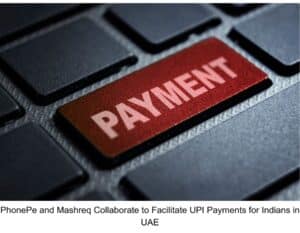
[ad_1]
The Reserve Bank of India (RBI) and Central Bank of the United Arab Emirates (UAE) announced on March 15 that they had signed a memorandum of understanding on collaboration and innovation in financial services.
The parties will particularly concentrate on central bank digital currency (CBDC) interoperability and will develop a proof-of-concept and pilot program for a CBDC bridge to facilitate remittances and trade. Such a bridge would reduce costs and increase efficiency of transactions, they noted, and strengthen economic ties.
Indian and UAE banking officials held talks in February on a rupee-dirham payment system using correspondent banks. That system has been under development for a year. The countries currently U.S. dollars to settle payments.
Walking the talk ! @RBI and UAE Central Bank signed a MoU for innovation in financial products. Development and interoperability in the field of Central Bank Digital Currencies (CBDCs) closer than ever. @DasShaktikanta @MEAIndia @Economyae @FinMinIndia @nsitharaman #FilePic pic.twitter.com/GDHC8Z9HdM
— India in UAE (@IndembAbuDhabi) March 15, 2023
Although remittances from the Gulf region are down 50% from 2016-2017, the UAE remains a major source of remittances to India, accounting for 17-18% of the total of around $87 billion, as of July 2022. The UAE was the top source for India until the COVID outbreak, when it was displaced by the United States.
Related: 5 countries leading the blockchain adoption
India and the UAE would presumably investigate a retail CBDC to handle remittances. India currently has a domestic digital rupee pilot project with 50,000 users and 5,000 participating merchants. The RBI also reported in late February that it had completed around 800,000 transactions worth $134 million with its wholesale CBDCs, and it has been testing its CBDC’s offline functionality.
India also recently integrated its non-blockchain unified payments interface with Singapore’s PayNow system.
The UAE launched a nine-part financial transformation program and announced its intention to launch a CBDC for domestic and cross-border us in February. Even before that, Emirati banks had participated in the mBridge pilot project, along with banks in Hong Kong, China and Thailand to use CBDC for cross-border transfers. In addition, the UAE expects cryptocurrency to “play a major role for UAE trade going forward,” UAE minister of state for foreign trade Thani Al-Zeyoudi said in January at the World Economic Forum.
[ad_2]








